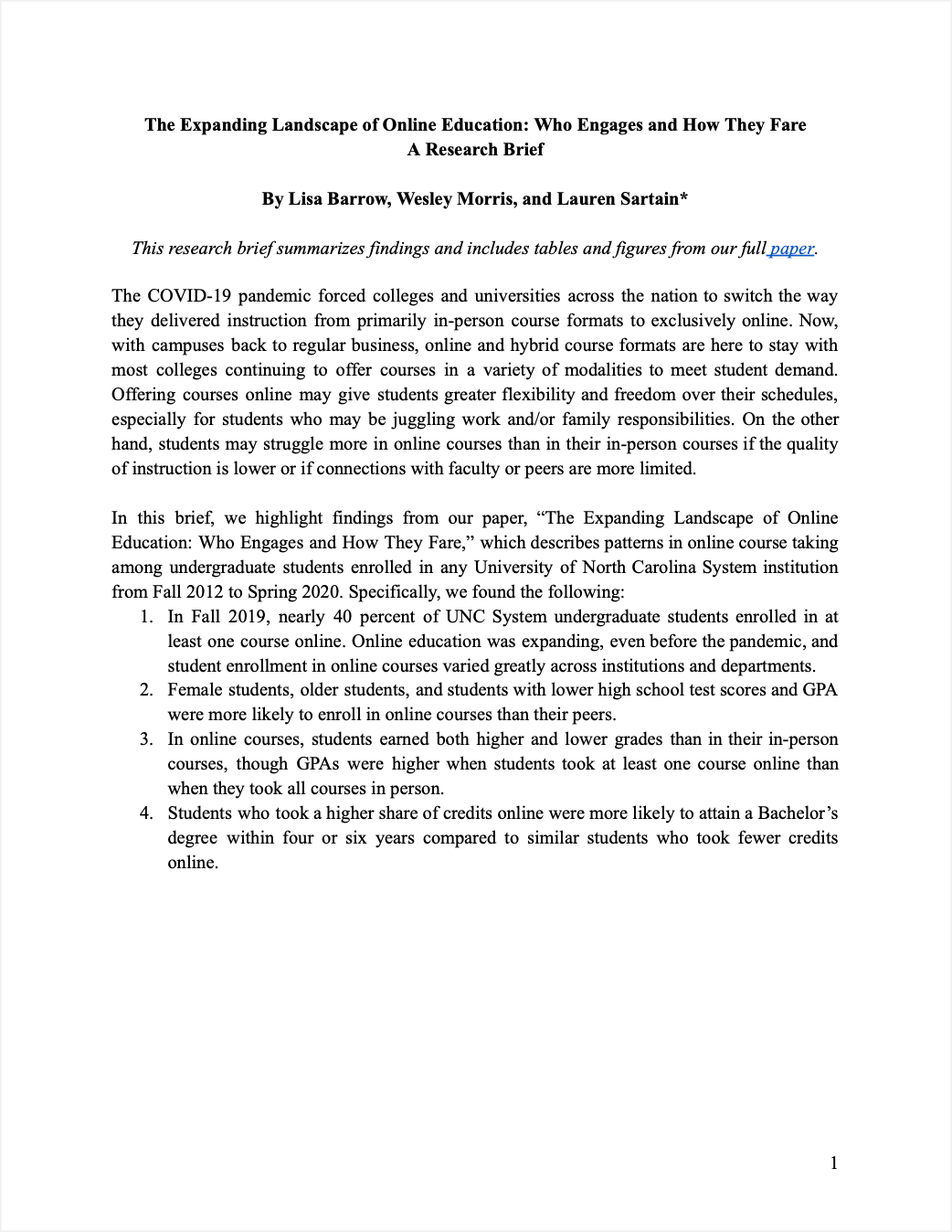Summary
The COVID-19 pandemic forced colleges and universities across the nation to switch the way they delivered instruction from primarily in-person course formats to exclusively online. Now, with campuses back to regular business, online and hybrid course formats are here to stay with most colleges continuing to offer courses in a variety of modalities to meet student demand. Offering courses online may give students greater flexibility and freedom over their schedules, especially for students who may be juggling work and/or family responsibilities. On the other hand, students may struggle more in online courses than in their in-person courses if the quality of instruction is lower or if connections with faculty or peers are more limited. In this brief, we highlight findings from our paper, “The Expanding Landscape of Online Education: Who Engages and How They Fare,” which describes patterns in online course taking among undergraduate students enrolled in any University of North Carolina System institution from Fall 2012 to Spring 2020. Specifically, we found the following: 1. In Fall 2019, nearly 40 percent of UNC System undergraduate students enrolled in at least one course online. Online education was expanding, even before the pandemic, and student enrollment in online courses varied greatly across institutions and departments. 2. Female students, older students, and students with lower high school test scores and GPA were more likely to enroll in online courses than their peers. 3. In online courses, students earned both higher and lower grades than in their in-person courses, though GPAs were higher when students took at least one course online than when they took all courses in person. 4. Students who took a higher share of credits online were more likely to attain a Bachelor’s degree within four or six years compared to similar students who took fewer credits online.
Citation
Barrow, L., Morris, W.T., & Sartain, L, “The Expanding Landscape of Online Education: Who Engages and How They Fare, A Research Brief” North Carolina Education Futures Initiative.
